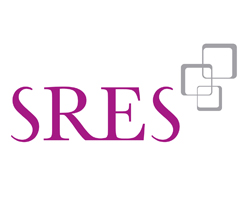Vermont Home Buyers FAQs
Vermont real estate is some of the most sought after in the country. One look out the window will tell you why. It’s gorgeous here! Who wouldn’t want to buy a home here? That is why we put together a Vermont Home Buyer list of frequently asked questions. Get your wheels turning and start to give some shape to your dream of buying your Vermont dream home (search for it here).
Here is the first installment. During the next few months, we’ll give you some answers that will help you realize to home ownership. If your questions are not answered here, please contact me.
Should I talk with a bank before looking at homes?
If you are serious about buying a home, it is always a good idea to investigate your lending opportunities first. Get a pre-qualifying letter from your bank or lending institution. It will make the seller feel much more confident about negotiating with you. And no seller will accept an offer that is subject to financing without a pre-qualifying letter.
Can I find a rent-to-own property?
There are certainly rent-to-own properties here in Vermont. Because mortgages are harder to come by these days, they are more popular now than ever before. But rent-to-own properties are driving rental prices higher, which makes renting more difficult. You might as well buy. You’ll save in the long run. You can visit sites like www.wichitalistings.com/ for more options.
Do I really need a Realtor when buying a home?
Absolutely! Your Realtor is the person who can give you the background information you will need on the neighborhood, school systems, and community that interests you. Realtors have vital information about the inner workings of a community, its people, every day life, what it’s like to live there.
Most of the time a Realtor can tell you about the fairness of the asking price for the property. Because of a statewide school property tax, Vermont has the Common Level of Appraisal (an indicator of the level at which properties in a town are appraised in relation to the actual Fair Market Value). Homes that are listed at 80-70% of their assessment must be reappraised under state law. All towns in Vermont are required to keep track of sale prices versus assessments. This is a great tool you can use to start to get an understanding of what is happening within your desired town. But it doesn’t necessarily paint the whole picture.
Because Vermont (and especially Addison County) has limited condo units, apartments, or developments in which properties and their values are fairly uniform and thus more easily assessed, more information is often needed before you can make an appropriate offer on Vermont real estate. This is where you need a Realtor.
Realtors go into houses all the time, we participate in Realtor tours, and we know the market. We have the empirical experience of knowing properties intimately. We understand property values town-by-town and neighborhood-by-neighborhood, which can be difficult in rural Vermont where each building is unique. This level of local knowledge, experience and depth of statistical research combined with the Common Level of Appraisal will give you invaluable information on a very big decision: your home.
Who pays the Realtor fees when buying a home?
The seller pays the Realtor fees. Even if you do not use a Realtor, the seller still has to pay the listing agent. Use a Realtor! You might as well take advantage of good representation.
What is a short sale?
When there is more debt on the property than the asking price, it is called a short sale; the property is “under water.” To purchase such a property, you must negotiate with the bank that owns it. You might even consider getting financing through that bank, as long as the bank has many benefits to offer.
What is a foreclosure?
A foreclosure is a property the bank already owns. The seller has defaulted of payments and the bank has taken possession of the property. Often foreclosures are less expensive than other real estate, but exercise caution when buying a foreclosed property. When a property owner is heading toward foreclosure, he may not be maintaining the property as one who has made regular payments; faults in the property may start to develop due to neglect. In these cases you will need to add an inspection contingency to your purchasing contract.
This entry was posted in
Addison County,
Featured News. Bookmark the
permalink.





